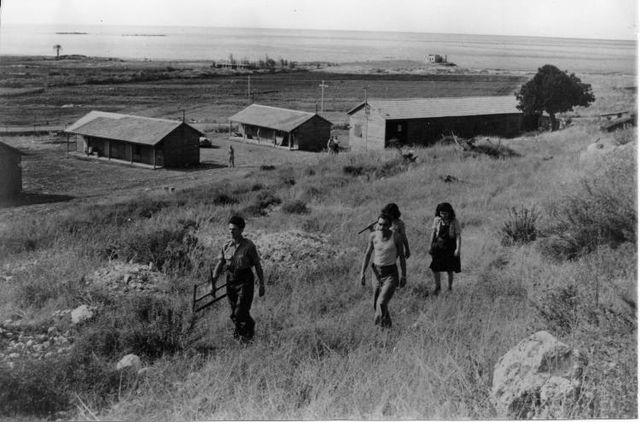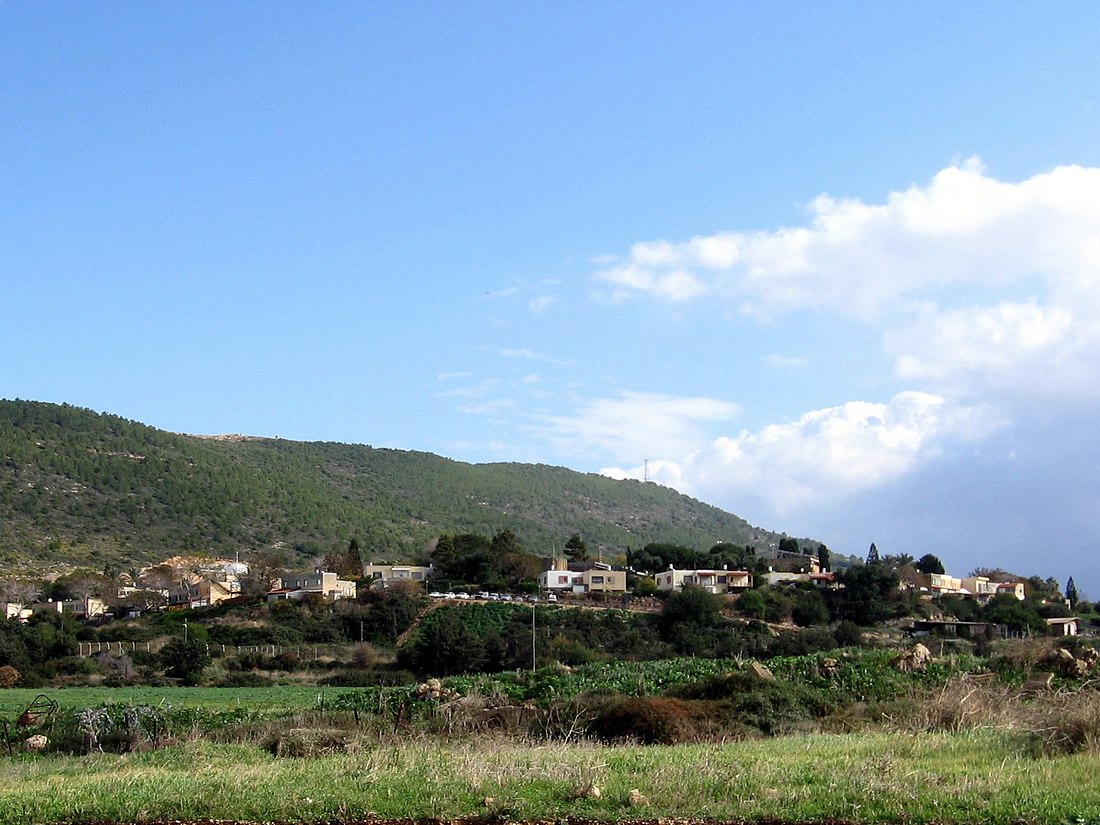Top Qs
Timeline
Chat
Perspective
Rosh HaNikra (kibbutz)
Place in Northern, Israel From Wikipedia, the free encyclopedia
Remove ads
Rosh HaNikra (Hebrew: ראש הנקרה, lit. 'Head of the Grottoes') is a kibbutz in northern Israel. Located on the Mediterranean coast near the Rosh HaNikra grottoes and the border with Lebanon, it falls under the jurisdiction of Mateh Asher Regional Council. In 2023 it had a population of 1,372.[1]
Remove ads
History
The kibbutz was established on 6 January 1949 by a gar'in of demobilised Palmach soldiers who moved there from kibbutz Hanita, along with Zionist youth movement members and young Holocaust survivors.
It was built on the village lands of al-Bassa, which was depopulated in the 1948 Arab–Israeli War.[2]
2023 Israel–Gaza war
During the Gaza war, northern Israeli border communities, including Rosh HaNikra, faced targeted attacks by Hezbollah and Palestinian factions based in Lebanon, and were evacuated.[3]

In January 2024, Hezbollah released a video of a strike on the Israeli naval base at Rosh Hanikra, on the border with Lebanon, saying it had used an Almas missile. Several subsequent videos over the spring 2024 also show to deploy the guided missile against Israeli targets. [4]
Remove ads
Economy
The kibbutz grows bananas and avocados, and raises turkeys. In 1974, kibbutz members founded a biotechnology company called Rahan Meristem, which included the first commercial tissue culture laboratory in the country. Rahan developed new procedures for large scale, in-vitro, clonal propagation of over 200 plant genera including ornamental, industrial, fruit, and vegetable crops. In the mid-1980s, in-vitro propagated banana plants became the leading product. Rahan is now a center of research and consultation for the banana industry throughout the world.
A formal R&D department was established in 1991 to provide technical support. Areas of expertise include molecular and classical genetics, plant cell and tissue culture, plant biochemistry and physiology, bacteriology and industrial biotechnology. Methods have also been developed for the control of contaminating microbes, early detection and elimination of somaclonal variation, reduction of labor and fixed costs in production, etc.[5]
In the early 21st century, the kibbutz was privatized.
Remove ads
Notable people
- Sacha Baron Cohen, English actor, comedian, screenwriter, and producer[6]
- Nufar Edelman (born 1982), Olympic sailor
- Eitan Friedlander (born 1958), Olympic sailor
- Dekel Keinan, Israeli footballer
See also
References
External links
Wikiwand - on
Seamless Wikipedia browsing. On steroids.
Remove ads



